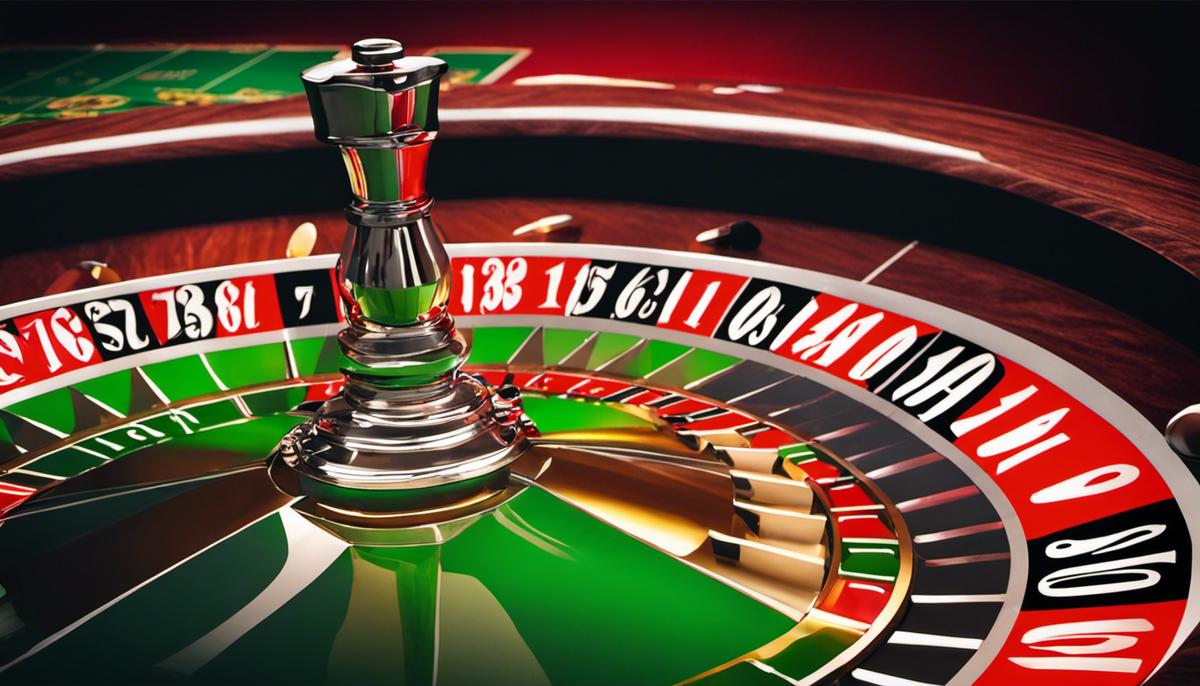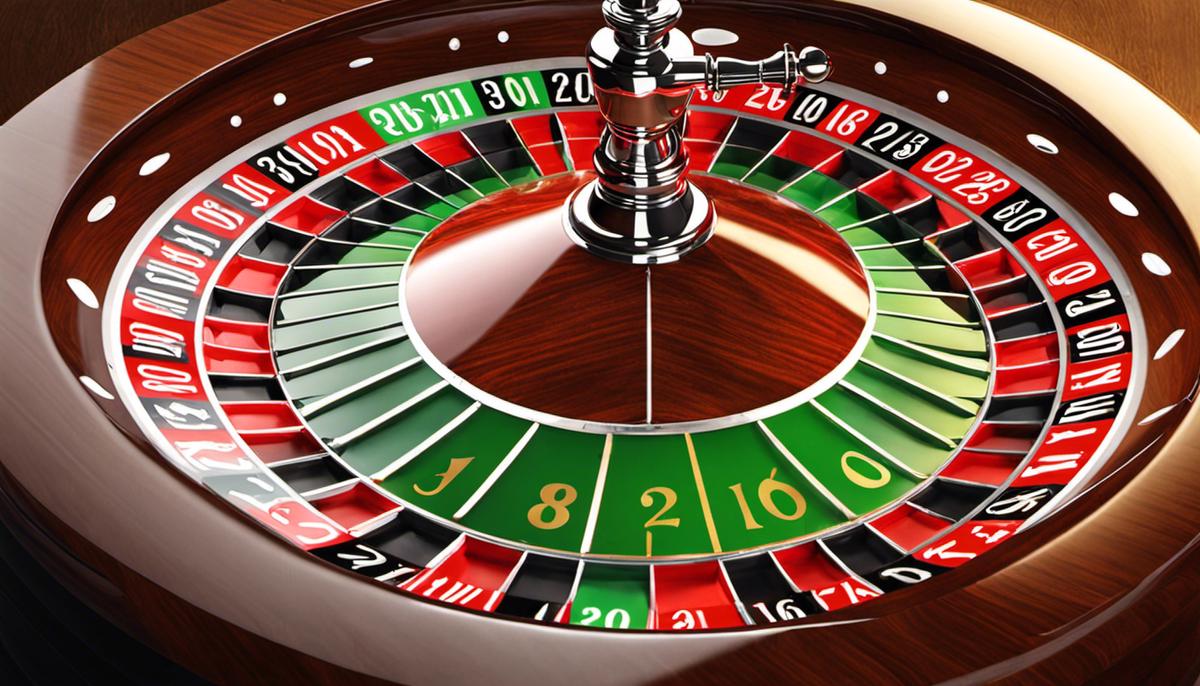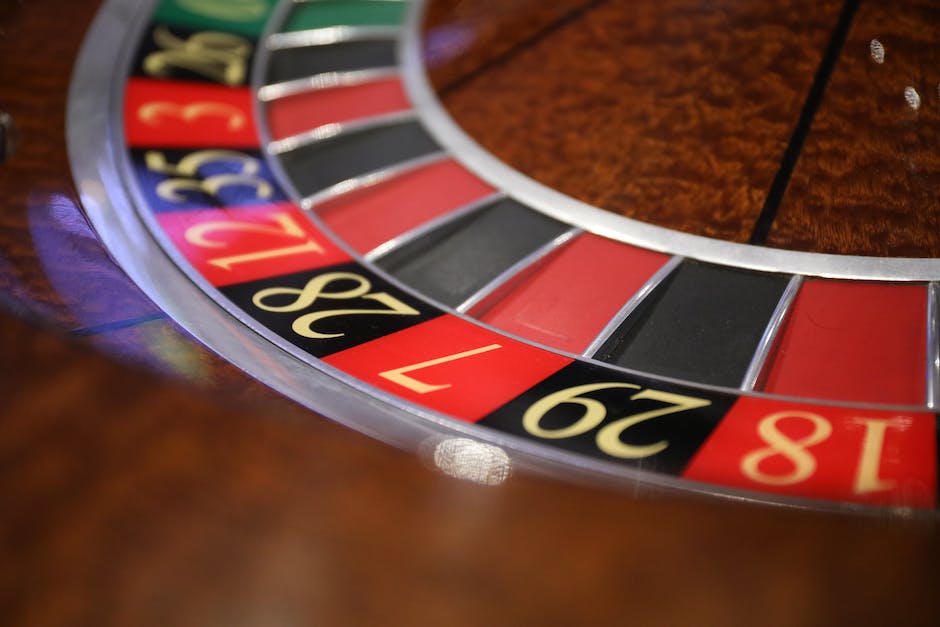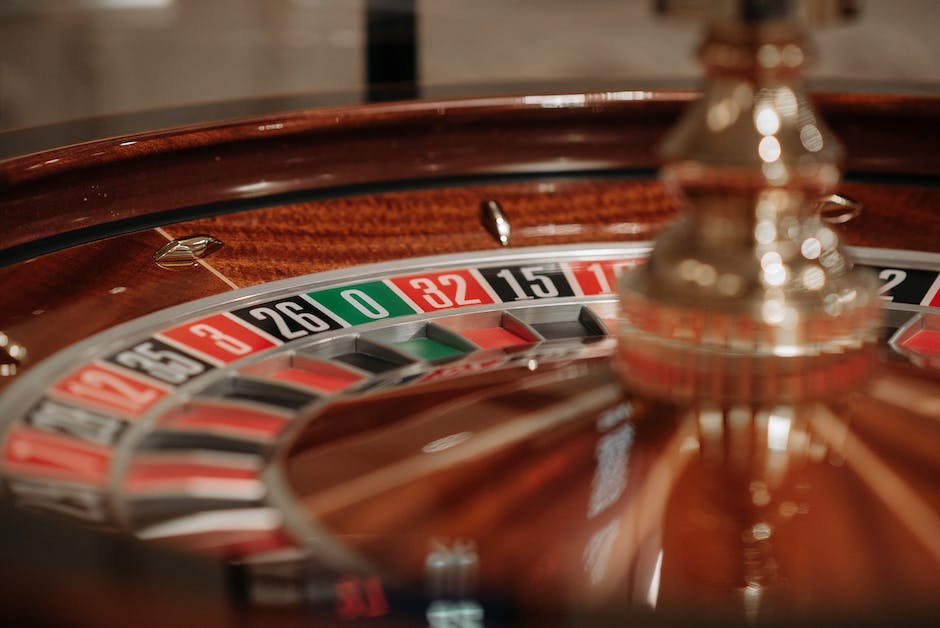BetterYouJourney.com is a participant in the Amazon Services LLC Some of the links in our posts are affiliate links. Click here to see full Disclosure.
The game of roulette, with its spinning wheel and suspenseful ball drops, has been captivating players for centuries. As a game of chance, it often seems like the odds are heavily stacked in favor of the casino. However, with the right knowledge, informed strategies, and responsible gambling habits, one can significantly enhance their roulette experience and potentially increase their winnings. This comprehensive guide will provide you with an understanding of the basics of roulette along with an analysis of several popular betting strategies. Additionally, it will offer you valuable insights into risk and bankroll management to ensure a balanced and strategic approach to your game. Finally, apply these strategies and tips to real-life roulette situations to consolidate your knowledge.
Understanding the Basics of Roulette
Understanding Roulette: The Game and Its Components
Roulette can be an exciting and potentially rewarding game to participate in, with its roots dating back to the 18th Century in France. Understanding the components and rules of the game is essential for developing winning strategies. The game consists of three key elements: the roulette wheel, the ball, and the betting table.
The roulette wheel is divided into 38 sections (for American roulette) or 37 sections (for European roulette), each of which is numbered and colored either red or black. The numbers range from 1 to 36, with an additional zero (colored green) in European roulette and a double zero in American roulette.
The wheel is spun by the croupier (the dealer), and a small ball is thrown in the opposite direction. Where this ball lands determines the outcome of all bets placed during that spin.
The betting table is where players place their bets. Each possible bet corresponds to a different potential payout, depending on likelihood.
Types of Bets in Roulette
There are several types of bets that can be made in roulette. The two main categories are “inside bets” and “outside bets”. Inside bets involve betting on specific numbers or small groups of numbers and these bets typically carry higher risk but also higher payouts.
Outside bets, on the other hand, are bets on larger groups of numbers, such as odd or even, red or black, or betting on dozens or columns of numbers. These bets are less risky but also offer lower payouts.
Understanding Odds and Payouts in Roulette
Understanding the odds and payouts in roulette is vital for developing winning strategies. The odds of winning a bet depend upon the type of bet placed. For instance, the odds of winning a straight-up bet (a bet on a single number) in American roulette is 1 in 38, with a payout of 35 to 1.
On the other hand, an even money outside bet (like betting on red or black, or odd or even) has close to a 50% chance of winning but pays out just 1 to 1.
American Roulette vs European Roulette
The first thing to consider when looking at strategies for winning at roulette is the version of the game being played. A key distinction exists between American and European roulette, and it revolves around the number of zeros on the wheel. American roulette includes both a single and a double zero, whereas European roulette only possesses a single zero. The presence of this additional zero slightly boosts the house advantage in American roulette, making the European version a marginally preferable option for those seeking to leverage strategy.
Despite this, it’s vital to note that roulette, irrespective of its version, is essentially a game of luck. The ultimate outcome primarily hinges on the random rotations of the wheel and the roll of the ball.

Analyzing Roulette Strategies
Analyzing Roulette Strategies
When exploring the vast realm of roulette, one quickly realizes that it’s widely recognized as a cornerstone of casino gaming worldwide. It gets even more interesting when you learn about the plethora of strategies designed to enhance winning chances. An important reality to remember is that, regardless of the myriad of strategies out there, roulette fundamentally remains a game of chance. The strategies proposed largely rest on the principles of statistical probability, and none can provide an absolute assurance of winning.
Martingale Strategy
The Martingale strategy is a progressive betting system, where players double their bets following every loss. Devised with the aim to regain lost capital and acquire small profits, this strategy operates on the theory of eventual wins in an even-money bet like reds or blacks, evens or odds.
However, the system’s principal disadvantage lies in enormous losses resultant from extended losing streaks. Furthermore, given that roulette tables typically have betting limits, players can max out and not recoup their losses. While theoretically sound, the Martingale strategy may not always be practically suitable.
D’Alembert Strategy
In contrast to the Martingale strategy’s aggressive betting scheme, the D’Alembert strategy is significantly safer. In this system, players increase bets by one unit after a loss and decrease it by one unit after a win. This system stands on the idea of equilibrium, presuming that over a long period, the number of losses will equal wins.
Whilst safer for the player’s bankroll, the D’Alembert tends to produce slower profits, meaning it may take longer to recover from a losing streak. Moreover, the concept of equilibrium is somewhat flawed, as each spin of the roulette wheel is an independent event and not influenced by previous spins.
Fibonacci Strategy
This strategy utilizes the Fibonacci numerical sequence, where each subsequent number is the sum of the two preceding ones. Following a loss, players move a step forward in the sequence to determine their next wager. After a win, they move back two steps.
Nevertheless, this strategy can lead to massive losses when on a losing streak and does not consider the downsides of reaching table limits. Also, even though it can provide short term gains, the mathematical basis of the system doesn’t directly influence the random outcomes in roulette play.
Debunking the ‘Hot Numbers’ Theory
The pseudoscience strategy of the ‘hot numbers’ theory dictates that numbers which have appeared disproportionately frequently are ‘hot,’ and hence, would continue to do so. However, this strategy is fundamentally flawed because roulette spins are independent events, and past outcomes do not affect future ones.
Comprehending Roulette Strategies and Their Limitations
It’s crucial to comprehend the different roulette strategies along with their limitations through an objective analysis. This insightful process can help manage a player’s expectations and possibly reduce potential losses. However, any seasoned player would concur that roulette, at its core, remains a game of chance. Thus, any implemented strategy only sways the betting patterns as opposed to the actual game outcomes.

Risk Management and Bankroll Management in Roulette
Appreciating the Importance of Risk Management in Roulette
In inherent games of chance like Roulette, the art of risk management often takes center stage. The prime objective here is not to eliminate risks—outright impossibility due to the inherently unpredictable nature of the game—but to manage them meticulously, thereby striking a healthy balance between potential losses and potential gains.
Initiating risk management commences with deciding how much you’re willing to put at stake. This decision boils down to setting loss limits—a well-defined boundary which, if crossed, means it’s time to stop playing to avoid further losses. Equally important is to set win limits—a target profit amount to aspire for and cease playing once attained.
One of the cornerstones of effective risk management in roulette is to develop a lucid betting strategy. This could involve placing bets only on certain types of bets, such as outside bets known for lower payouts but offering higher chances of winning. For those with a bit of roulette experience up their sleeves, they can consider incorporating structured betting systems such as the Martingale, Labouchere, or Fibonacci systems into their roulette strategy.
Bankroll Management Strategies for Roulette
Bankroll management refers to how you manage the money you set aside to play roulette with. It’s pivotal in managing risk because it helps you sustain your play during losing streaks and avoid going broke.
One important rule of thumb in bankroll management is never to gamble with money that you can’t afford to lose. Beyond that, it’s still crucial to decide how much of your bankroll you should bet on each spin. This decision is often dictated by your risk tolerance and the betting strategy you’re following.
A common strategy is to bet a small percentage of your bankroll on each spin – usually no more than 5%. This approach allows for sustained play and minimizes the risk of significant losses on a single spin.
Some players might choose to break their bankroll down further using session stakes –meaning, allocating a certain amount of their bankroll for each session of play. Once this limit is reached, the session would end, even if it happened quicker than expected.
Potential Risks of Gambling Addiction
While roulette can be fun and potentially profitable, the risks of problem gambling or addiction shouldn’t be ignored. Understand that the odds are always stacked against you in a casino, and consistently profitable play is highly unlikely given the house edge.
With that said, be mindful of the signs of problem gambling – which could mental preoccupation with gambling, inability to stop or cut back, lying to conceal activity, and using gambling as an escape. Seek help if you find yourself or someone you know displaying these signs. In every strategy you employ, playing responsibly should always be the overriding consideration.
Understanding the Role of Risk and Bankroll Management
Risk and bankroll management may not promise a win with every spin, but they serve a vital role in enhancing your gameplay. This strategy focuses on making your play last longer, seizing opportunities for bigger wins when possible, and minimizing potential losses. In luck-based games like roulette, adopting a tactical approach to manage your finances can significantly tip the scales in your favor.

Applying Roulette Strategies in Real-Life Situations
Diving Deep into Roulette Betting Strategies
While roulette largely remains a chance-based game, implementing a betting strategy can heighten the thrill and possibly boost your earnings. Numerous strategies are in the fray, some of which like the Martingale, D’Alembert, and Labouchere strategies are enormously popular for maximizing winning prospects. However, it’s crucial to bear in mind that the house maintains an edge in roulette, and these approaches can’t ensure a win.
Martingale Strategy
The Martingale Strategy is possibly the most famous roulette strategy. Here, the player doubles their bet after every loss, so when they do eventually win, it will recover all previous losses plus a profit equal to the original bet. In an ideal scenario, a player using the Martingale strategy can always make profits, however, in real life, continuous losses can lead to substantial sums of money being wagered.
D’Alembert Strategy
The D’Alembert Strategy is similar to the Martingale, but it involves a smaller increase in the bet size. The bet size increases by one unit after a loss and decreases by one unit after a win. This strategy is safer than the Martingale, as it decreases the chance of hitting table limits.
Labouchere Strategy
The Labouchere Strategy involves using a series of numbers to determine bet sizes. Each bet is the sum of the first and last numbers in the series. If you win, you cross the numbers off the list. If you lose, you add the amount lost at the end of the series.
Choosing the Right Strategy
When choosing the right roulette strategy for your game, consider factors such as your risk tolerance, bet limits, and your understanding of the game. The Martingale can lead to large wins but also substantial losses if you hit a loss streak. The D’Alembert is a more cautious strategy, ideal for those who prefer lower risk. The Labouchere provides flexibility and is suited for those who are comfortable with more complex betting structures.
Real-life Application of Roulette Strategies
In an actual gaming situation, knowing when to apply these strategies is crucial. Consider this scenario: you’re at a casino and have been experiencing a mix of wins and losses. If you’ve allotted a sizable amount for gambling, leveraging the Martingale strategy could help you recover your losses with a potential profit.
In contrast, if you’re on a tight budget or have already been on a losing streak, the D’Alembert strategy might be more appropriate since it has a more conservative approach towards increasing bets.
Similarly, if you know you are going to play for a longer duration and prefer a more systematic betting approach, then the Labouchere might suit your needs, provided you keep track of your number series correctly.
Remember, these strategies should be applied within the context of smart bankroll management, so you must establish limits for your losses to avoid running out of money. Always make sure to gamble responsibly and remember that roulette strategies cannot overcome the house edge. They are merely systems that give structure to your betting, which may prolong your game and can make playing more enjoyable.

While there is no surefire strategy that guarantees success in roulette, a solid understanding of the game’s mechanics, combined with a strategic approach can improve your chances significantly. It is crucial to remember that roulette, at its core, is a game of chance and that the house always has an edge. Yet, with the analysis and application of various strategies discussed, and with prudent risk and bankroll management, one can embark on this thrilling journey with an increased chance of success. So, step into the exciting world of roulette, adjust strategies to the changing dynamics of the game, and most importantly, enjoy the game responsibly and have fun!








